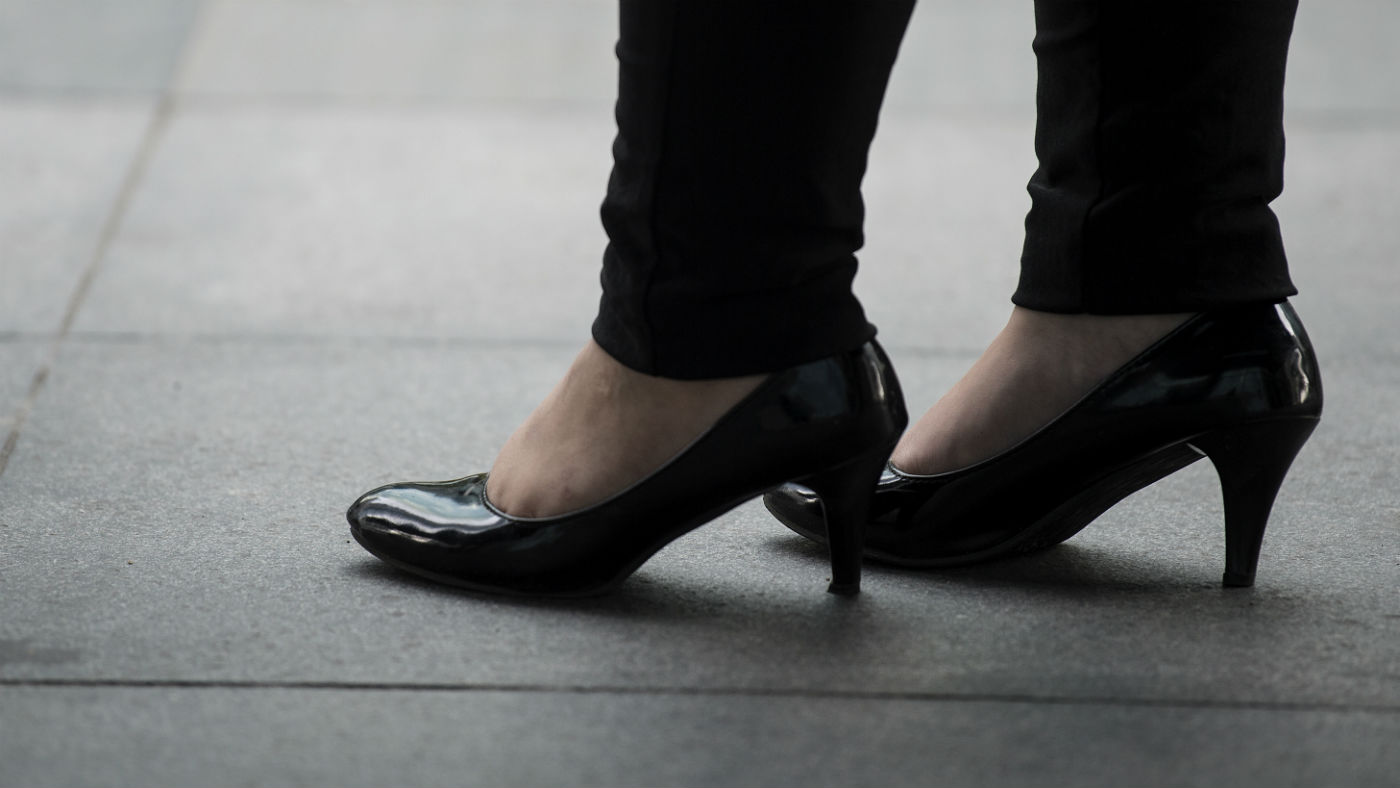Why Japanese women are taking a stand against high heels
Social media campaign against dress codes and expectations that women wear high heels at work has gone viral

A free daily email with the biggest news stories of the day – and the best features from TheWeek.com
You are now subscribed
Your newsletter sign-up was successful
Japanese women are taking a stand against strict dress codes and expectations they wear heels at work, after a social media campaign highlighting gender inequality in the workplace went viral.
More than 20,000 women have signed an online petition demanding the government ban companies from requiring female employees to wear high heels at work.
The #KuToo campaign, started by 32-year-old actress and freelance writer Yumi Ishikawa, is a play on the word for shoes, or “kutsu” in Japanese, and “kutsuu” or pain.
The Week
Escape your echo chamber. Get the facts behind the news, plus analysis from multiple perspectives.

Sign up for The Week's Free Newsletters
From our morning news briefing to a weekly Good News Newsletter, get the best of The Week delivered directly to your inbox.
From our morning news briefing to a weekly Good News Newsletter, get the best of The Week delivered directly to your inbox.
The Daily Telegraph reports that “some campaigners online have said high heels are akin to modern foot-binding while others urged other dress codes, such as the near-total donning of business suits for men, to be loosened in the Japanese workplace”.
CNN says “there are currently no laws that restrict companies from regulating employees’ work wear” and while many Japanese companies may not explicitly require female employees to wear high heels, “many women do so because of tradition and social expectations,” reports Reuters.
Citing this as an example of gender discrimination, Ishikawa told the news agency the campaign had received more attention from international media outlets than domestic ones, and there was a tendency in Japan to portray the issue as a health one, not a gender one.
“In recent years, campaigns such as #MeToo have brought Japan's gender inequality problems into the spotlight,” says CNN.
A free daily email with the biggest news stories of the day – and the best features from TheWeek.com
Japan is ranked at 110 out of 149 countries in the World Economic Forum's index measuring the degree of gender equality. The country also ranks bottom among the G7 countries for gender equality, despite Prime Minister Shinzo Abe's pledge to empower working women through a policy called “womenomics”.
Yet it is not just a problem unique to Japan. In 2016 a similar campaign was launched in the UK after Nicola Thorp was sent home from work from accountancy firm PwC for refusing to wear high heels.
Following coverage in the media, the BBC reports that outsourcing firm Portico who had hired Thorp announced that female colleagues could “wear plain flat shoes” with immediate effect.
However, while a subsequent parliamentary investigation into dress codes found discrimination in British workplaces, the government rejected a bill banning companies from requiring women to wear high heels.
-
 How to juggle saving and paying off debt
How to juggle saving and paying off debtthe explainer Putting money aside while also considering what you owe to others can be a tricky balancing act
-
 Hong Kong jails democracy advocate Jimmy Lai
Hong Kong jails democracy advocate Jimmy LaiSpeed Read The former media tycoon was sentenced to 20 years in prison
-
 Japan’s Takaichi cements power with snap election win
Japan’s Takaichi cements power with snap election winSpeed Read President Donald Trump congratulated the conservative prime minister
-
 Epstein files topple law CEO, roil UK government
Epstein files topple law CEO, roil UK governmentSpeed Read Peter Mandelson, Britain’s former ambassador to the US, is caught up in the scandal
-
 Iran and US prepare to meet after skirmishes
Iran and US prepare to meet after skirmishesSpeed Read The incident comes amid heightened tensions in the Middle East
-
 Israel retrieves final hostage’s body from Gaza
Israel retrieves final hostage’s body from GazaSpeed Read The 24-year-old police officer was killed during the initial Hamas attack
-
 China’s Xi targets top general in growing purge
China’s Xi targets top general in growing purgeSpeed Read Zhang Youxia is being investigated over ‘grave violations’ of the law
-
 Panama and Canada are negotiating over a crucial copper mine
Panama and Canada are negotiating over a crucial copper mineIn the Spotlight Panama is set to make a final decision on the mine this summer
-
 Why Greenland’s natural resources are nearly impossible to mine
Why Greenland’s natural resources are nearly impossible to mineThe Explainer The country’s natural landscape makes the task extremely difficult
-
 Iran cuts internet as protests escalate
Iran cuts internet as protests escalateSpeed Reada Government buildings across the country have been set on fire
-
 US nabs ‘shadow’ tanker claimed by Russia
US nabs ‘shadow’ tanker claimed by RussiaSpeed Read The ship was one of two vessels seized by the US military